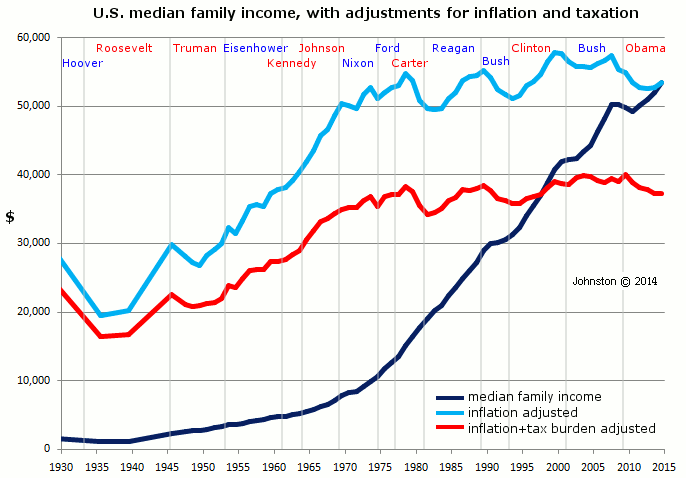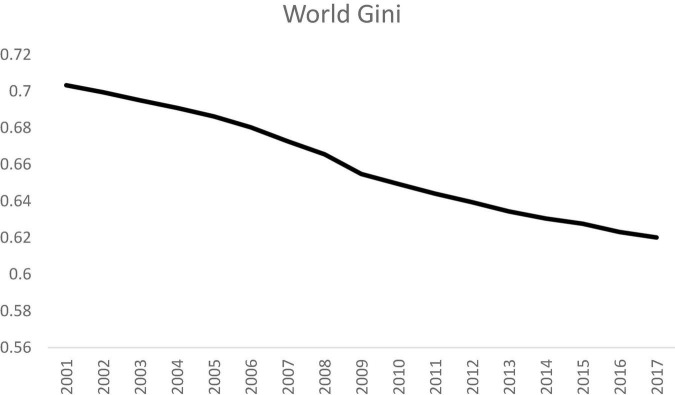Ok, then can you demonstrate the mechanism by which the wealth of a nation leads to a lower birthrate, if not by making childcare costs much more expensive?
I already suggested a mechanism by which a third factor could be causal in both, leading to a correlation that is not causal.
my strong suspicion is that the underlying cause of both high birth rates and poverty is a lack of educational opportunities, and that it's education that's the major factor.
The wealth of a nation may well NOT lead to a lower birth rate; Rather, the availability of education may lead BOTH to a wealthy nation, AND to lower birth rates.
You're asking me to suggest a mechanism by which increased ice-cream consumption leads to more murders*, when I merely noted that the two were correlated, and explicitly said that they likely were not cause and effect.
*Clearly that's absurd; It's obvious that the correlation is due to the fact that successfully murdering someone is usually celebrated with an ice-cream.
I don't disagree that education is a factor, but to call it the main factor seems unlikely to me. The reality is that most people do want children, and they'll have as many as they can afford.
In poorer nations it's easier to have more because there are fewer associated costs. In wealthy nations having too many is dangerous.
I don't think you're really understanding how big of an impact finance is having on my generation. Contrast that to the baby boomers who had huge amounts of children, when the money was there.
I haven't read the entire thread, but your comment seems very ignorant to me. I am a baby boomer who had one child. One of my sisters chose to have none and my late sister had two. Most of my baby boomers friends had one or two children. You probably don't realize it, but we were the generation who was encouraged not to have many children due to the increasing world population. There are many baby boomers on this forum. I doubt many of them have more than two kids. Conservative Catholics may have had more kids. My husband's cousins had as many as 4, but their parents often had 8, so it's not baby boomers who had the most kids. It was our parents generation, at least in the US. I personally know quite a few baby boomers who had 7 or 8 siblings, but I don't know a single boomer who had that many children.
On the other hand, the millennials who I worked with until I retired about 6 years ago, had as many as 10 children and they were poor. The two smarter ones only had one or two children, but most of the others had 4 or more. I also have a friend who is barely Gen X, who chose to have 6 children. Not one of these people can afford the children they have and it wasn't because they had no access to birth control. In some cases, the first one wasn't planned, but the rest were. The friend who has 6 children has a 25 year old daughter who just decided she wanted a child with a man who she only dated briefly. She recently gave birth to the first one and she lives with her parents as she can't afford her own place on her meager salary. She worked two jobs prior to getting pregnant, but low paying jobs are in abundance in the states. Nursing and aide salaries have risen substantially since I retired too, so the value of a degree or certificate depends on the major or discipline. My Gen X son has been a programmer developer for years with a BS in computer science and an AD in computer repair. He just changed his contractor job to work in government because he hasn't had a raised in years, despite being constantly praised for his work. His wife refuses to work, so he needs more money to support his two kids and wife.
At least in the US, it's more likely that poor women are having more children. Based on my working with them, it seems as if many of them have children because they have little else to value.They love their children and find purpose in having them. Most of them seemed to be good parents, and some of them had very large supportive extended families to help raise them.
One who only had one child told me she was embarrassed to be receiving SNAP benefits. I told her if her asshole boss paid her more than 8 dollars an hour, she wouldn't need SNAP. I told her it was welfare for business. I have no idea how much help the others received, but I imagine most of them received subsidized housing and help with food, as well as Medicaid for their kids. I have no problem with that since I know that when kids are raised in a healthy environment with decent food, housing etc., they usually turn out to be more productive adults. So, denying them food, housing etc. hurts society at large, although I don't totally understand wanting more than one or two children. Maybe it's different in your country, but don't make assumptions about who has had the most children in the US. I don't think it was baby boomers, although poor baby boomers might have had more kids, just none that I know personally.
A lot of people in the US live well above their means. They eat out a lot, buy things they don't need or like my sister insist on buying homes in high status areas that they can barely afford. It's true that housing has risen substantially in the past few years, but at least in the states it's a supply and demand thing. Homes on my street that sold for about 135 to 150K five years ago, now go for over 250K. Investors have also bought up a huge percentage of homes and when they rent them out, they ask for extremely high rents. A lot of it is greed, not something due to any generation in particular. Enough ranting on my part.



